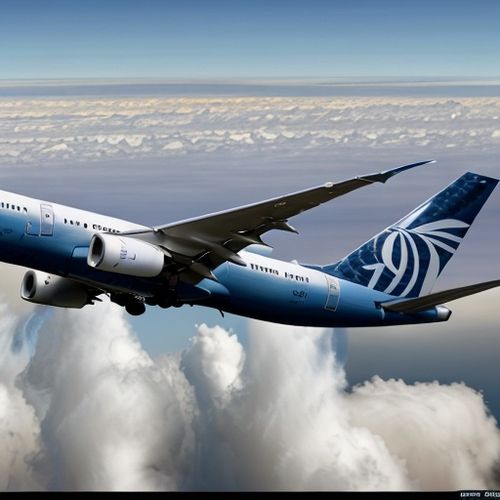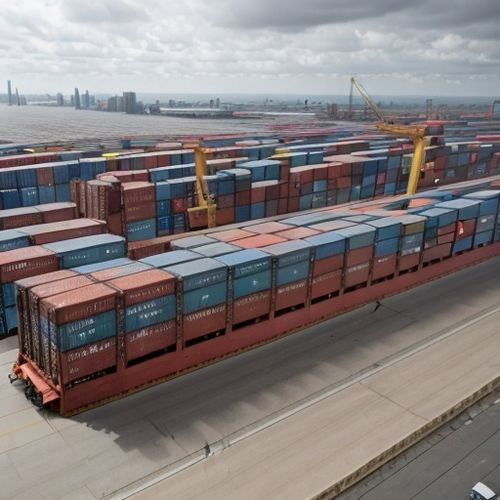In the high-stakes world of aerospace, where precision engineering meets global commerce, the recent agreement between Europe’s Airbus and Spirit AeroSystems marks a pivotal moment in the industry’s ongoing reconfiguration. This deal, finalized on Monday, is not just a business transaction; it is a strategic maneuver that reflects the complex dynamics between European and American aviation giants, as well as the broader challenges facing the sector in the wake of recent crises.
The agreement sees Airbus taking on some of Spirit AeroSystems' assets, a move that completes a critical part of a transatlantic carve-up involving Spirit, its US rival Boeing, and the struggling supplier's operations. Last year, Boeing agreed to buy back the aerospace giant it had spun off two decades earlier for $4.7 billion in stock. Meanwhile, Airbus moved to acquire the supplier’s loss-making Europe-focused activities. This strategic division of assets is a response to the financial and operational challenges that have plagued Spirit AeroSystems, as well as the broader industry.
Two key plants are central to this transfer: one in Kinston, North Carolina, where Spirit manufactures a crucial part of the A350 fuselage, and another in Belfast, Northern Ireland, which produces carbon wings for the A220. These facilities are not just production hubs; they are symbols of the intricate supply chains that underpin the global aerospace industry. The transfer of these assets to Airbus is a significant milestone, according to Spirit Chief Financial Officer Irene Esteves. "Entering into this agreement is a significant milestone as we work towards the closing of the Boeing acquisition, to the benefit of Spirit, its stockholders, and other stakeholders," she said.
The deal involves more than just the transfer of physical assets. Airbus will provide non-interest-bearing credit lines worth $200 million to Spirit, a financial lifeline that underscores the interconnectedness of the aerospace industry. In return, Airbus will be compensated by a payment of $439 million from Spirit. This financial arrangement is a delicate balancing act, designed to ensure that both companies emerge from the deal in a stronger position.
Letters sent this month to employees from Boeing Commercial Airplanes CEO Stephanie Pope and Spirit CEO Pat Shanahan suggest that some work in Belfast and a plant in Prestwick, Scotland, not absorbed by Airbus, would go to Boeing. Spirit’s statement clarified that Airbus would acquire the production of A220 wings in Belfast. In case a suitable buyer isn’t found, Airbus would also take over the production of the A220 mid-fuselage. Meanwhile, Airbus said it would acquire the production of wing components for A320 and A350 in Prestwick, Scotland.
This complex web of asset transfers and financial arrangements is a response to the challenges facing the aerospace industry. Boeing’s decision to buy back its former subsidiary comes as the planemaker boosts production of its best-selling 737 MAX jet, following a series of crises in 2024 that weighed on output. Spirit, which produces the fuselage for the MAX, raised doubts last year about its ability to continue as a going concern, receiving financial help from both planemakers. Wichita, Kansas-based Spirit AeroSystems reported in February that it has total financial liquidity of $890 million but expects to burn $650 million to $700 million in free cash during the first half of 2025, without offering an explanation.
Airbus CFO Thomas Toepfer told shareholders earlier this month that the company expected to complete the agreement with Spirit by the end of April. The full deal with Boeing is expected to close in the third quarter. This timeline underscores the urgency with which both companies are moving to stabilize their supply chains and ensure continuity in production.
The implications of this deal extend beyond the immediate financial and operational considerations. The aerospace industry is a global enterprise, with supply chains that span continents and involve thousands of suppliers and subcontractors. The transfer of assets between Airbus and Spirit AeroSystems is a microcosm of the broader challenges facing the industry, including the need for greater flexibility, resilience, and strategic alignment.
For Airbus, the acquisition of Spirit’s European assets is a strategic move to strengthen its supply chain and ensure a steady supply of critical components. The company’s focus on the A220 and A350 programs reflects its commitment to maintaining a competitive edge in the global market. For Spirit AeroSystems, the deal represents a lifeline, providing much-needed financial support and a clearer path forward in a challenging economic environment.
The involvement of Boeing adds another layer of complexity to the deal. As the US planemaker looks to boost production of its 737 MAX jet, securing a stable supply chain is crucial. The carve-up of Spirit AeroSystems’ assets between Airbus and Boeing is a strategic maneuver designed to ensure that both companies can meet their production targets and maintain their competitive positions in the global market.
The deal also highlights the importance of collaboration and strategic alliances in the aerospace industry. In an era of increasing competition and economic uncertainty, companies like Airbus and Boeing are finding that working together can provide mutual benefits. The transfer of assets and the financial arrangements between Airbus and Spirit AeroSystems are a testament to the complex interdependencies that exist within the industry.
Moreover, the deal underscores the broader economic and geopolitical dynamics at play. The aerospace industry is a key driver of economic growth and innovation, employing millions of people worldwide and contributing significantly to national economies. The carve-up of Spirit AeroSystems’ assets between Airbus and Boeing reflects the ongoing competition between European and American aerospace giants, as well as the need for both companies to navigate the challenges of a rapidly changing global economy.
The agreement between Airbus and Spirit AeroSystems is a significant milestone in the ongoing reconfiguration of the aerospace industry. It reflects the complex dynamics between European and American aviation giants, as well as the broader challenges facing the sector in the wake of recent crises. The deal involves the transfer of key assets, financial support, and strategic alignment, all aimed at ensuring the stability and continuity of production. As the full deal with Boeing is expected to close in the third quarter, the industry will be watching closely to see how this strategic maneuver impacts the global aerospace landscape. The future of the industry remains uncertain, but one thing is clear: The decisions made today will shape the trajectory of aerospace for years to come.

By Eric Ward/Apr 29, 2025

By Jessica Lee/Apr 29, 2025

By Lily Simpson/Apr 29, 2025

By Amanda Phillips/Apr 29, 2025

By James Moore/Apr 29, 2025

By Amanda Phillips/Apr 29, 2025

By Sophia Lewis/Apr 29, 2025

By Ryan Martin/Apr 29, 2025

By Elizabeth Taylor/Apr 29, 2025

By Noah Bell/Apr 29, 2025

By Emily Johnson/Apr 29, 2025

By Grace Cox/Apr 29, 2025

By Rebecca Stewart/Apr 29, 2025

By Elizabeth Taylor/Apr 29, 2025

By Michael Brown/Apr 29, 2025

By Olivia Reed/Apr 29, 2025

By Daniel Scott/Apr 29, 2025

By Joshua Howard/Apr 29, 2025

By Megan Clark/Apr 29, 2025

By John Smith/Apr 29, 2025